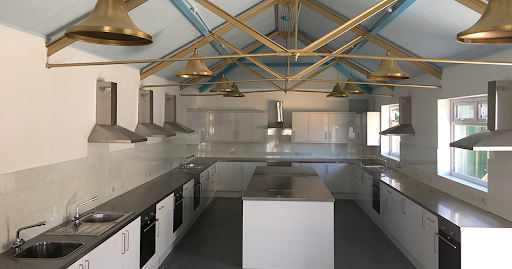
When it comes to setting up a functional and hygienic food prep space, kitchen worktops play a critical role. These surfaces are the unsung heroes of every restaurant, café, catering unit, or bakery — taking the brunt of daily operations, food prep, and cleaning cycles. Choosing the wrong type can lead to costly repairs, hygiene issues, and a drop in kitchen efficiency. In this blog, we’ll explore the top 7 common mistakes buyers make when choosing commercial kitchen worktops and how you can avoid them.
1. Prioritizing Aesthetics Over Functionality
Yes, a sleek worktop can elevate the look of your kitchen — but in a commercial setting, functionality trumps form every time. A stunning marble slab might impress on day one, but how does it fare against heat, sharp knives, or heavy-duty scrubbing? Always evaluate durability, ease of cleaning, and resistance to wear before selecting a surface based on how it looks.
Tip:
Opt for materials like stainless steel or engineered quartz that blend durability with easy maintenance and still look great over time.
2. Ignoring Hygiene Compliance Standards
In the food industry, hygiene isn’t optional — it’s law. Certain porous materials like wood or untreated stone can harbor bacteria, leading to serious health violations. Choosing a non-compliant worktop can get your establishment flagged or shut down during inspections.
Tip:
Always ensure the material is non-porous, antimicrobial, and meets local health and safety standards.
3. Choosing the Wrong Material for Your Specific Operation
What works in a bakery might not work in a meat prep kitchen. A high-volume restaurant kitchen will have different needs compared to a juice bar. The biggest mistake is assuming one-size-fits-all.
Tip:
Tailor your choice to your kitchen’s primary function. For example, stainless steel is great for heat and moisture, while visiting a quartz showroom can give you insight into durable, versatile surfaces perfect for multipurpose use.
4. Underestimating Long-Term Costs
Sure, you might save some money upfront with cheaper materials — but are you prepared for frequent replacements or constant maintenance? Cheap surfaces tend to chip, crack, or stain easily under heavy use.
Tip:
Invest in long-term value. Worktops with high durability may have a higher initial cost but will save you money in maintenance and replacements down the line.
5. Poor Installation Decisions
Even the best materials will fail if poorly installed. Uneven surfaces, weak joints, or poor sealing can lead to water damage, bacterial build-up, or warping — especially in high-moisture environments like commercial kitchens.
Tip:
Hire experienced professionals who specialize in commercial kitchen worktops and understand the unique demands of a commercial food space.
6. Skipping Customization Options
Every commercial kitchen layout is unique. Standard worktops might not fit seamlessly with your kitchen equipment, shelving, or sinks. Yet many business owners opt for generic solutions that don’t maximize workflow or space.
Tip:
Consider customization. Tailor your worktops to your kitchen’s layout to improve accessibility, increase efficiency, and enhance ergonomics for your staff.
7. Not Considering Future Expansion or Renovation
Many businesses outgrow their initial setup. Choosing a worktop that’s hard to match, expand, or relocate can complicate future renovations or expansions. This oversight can increase costs and create design inconsistencies down the road.
Tip:
Choose modular or widely available materials that can be easily sourced later if you decide to expand or remodel.
Conclusion
Selecting the right commercial kitchen worktops is more than a design decision — it’s a foundational investment in your kitchen’s performance, safety, and longevity. By avoiding these seven common mistakes, you set your kitchen up for efficiency, compliance, and sustainability from the ground up.
Take the time to research materials, visit a trusted quartz showroom, and consult with industry professionals. Your countertops aren’t just surfaces — they’re strategic assets in a well-run commercial kitchen.